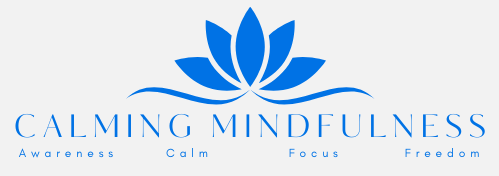Top Meditation Tips: Practical Advice for Enhancing Your Practice

Introduction:
Embarking on a meditation journey can be transformative, but the practical tips and strategies often help us stay grounded and committed to the practice. In this article, we’ll delve into some actionable tips to enhance your meditation experience, focusing on specific details to help you implement each suggestion effectively.
Establish a Consistent Schedule:

Consistency is key to building a sustainable meditation practice. Set aside a specific time each day for meditation, whether first thing in the morning, during your lunch break, or before bed. Creating a routine helps reinforce the habit and makes it easier to prioritize meditation amidst life’s demands.
Designate a Dedicated Meditation Space:
Having a designated meditation space can help signal to your mind that it’s time to enter a state of mindfulness. Choose a quiet, clutter-free area where you won’t be disturbed, and adorn it with items that inspire tranquility, such as cushions, candles, or a small altar. Make it a sacred space that invites you to center yourself and dive deep into your practice.

Invest in Comfortable Seating and Props to Enhance Comfort:
Sitting comfortably is essential for maintaining focus during meditation. Invest in a cushion or meditation bench that supports proper posture and allows you to sit easily for an extended period. Experiment with different seating options until you find one that feels comfortable and conducive to deep meditation.
If you struggle with discomfort or tension during meditation, consider using props to support your body and alleviate strain. Blankets, bolsters, and yoga blocks can be utilized to cushion your seat, support your knees, or prop up your spine, allowing you to relax more deeply into your practice.

Incorporate Gentle Movement:
Sometimes, sitting still for an extended period can be challenging, especially for beginners. Incorporating gentle movement practices like stretching or yoga before meditation can help release tension from the body and prepare you for stillness. Experiment with simple stretches or yoga poses to find what feels best for you.
Set Realistic Goals and Clear Intentions:
Instead of aiming for long periods of meditation right away, start with shorter sessions and gradually increase the duration as you become more comfortable. Setting realistic goals will help you stay motivated and prevent feelings of frustration or discouragement.
Before each meditation session, take a moment to set clear intentions for your practice. Ask yourself why you’re meditating and what you hope to cultivate or explore while on the cushion. Setting intentions can help guide your focus and infuse your practice with purpose and meaning.
Experiment with Different Techniques:
Meditation is a diverse practice with countless techniques to explore. Experiment with different styles, such as mindfulness meditation, loving-kindness meditation, or body scan meditation, to discover what resonates most with you. Don’t be afraid to mix and match techniques or try new approaches to keep your practice fresh and engaging.
Seek Guidance and Support and Stay Open to Adjustments:
If you’re struggling with your meditation practice or have questions, don’t hesitate to seek guidance from experienced practitioners or meditation teachers. Joining a meditation group or attending workshops and retreats can also provide valuable support and encouragement on your journey.
As you deepen your meditation practice, remain open to making adjustments and adaptations along the way. Your needs and preferences may change over time, and listening to your body and intuition is essential. Whether modifying your seating arrangement, exploring new techniques, or adjusting your meditation schedule, be willing to evolve with your practice.
Reflect and Journal:

After each meditation session, take a few moments to reflect on your experience. Consider journaling about any insights, emotions, or observations that arose during your practice. Reflecting and journaling can help deepen your self-awareness and provide valuable insights into your meditation journey.
Celebrate Your Progress:
Finally, celebrate your progress and milestones along the way. Whether completing a month of daily meditation, experiencing moments of deep stillness, or noticing positive changes in your daily life, take time to acknowledge and celebrate your achievements. Cultivating gratitude and joy can fuel your motivation and inspire you to continue growing on your meditation path.
Conclusion:
By implementing these practical meditation tips into your practice, you can enhance your experience and reap the full benefits of this transformative practice. Remember that meditation is a journey of self-discovery and growth, and each step brings you closer to greater peace, clarity, and inner harmony. Keep exploring, stay open to new possibilities, and trust in the wisdom of your own heart and mind.
